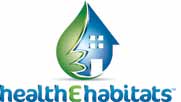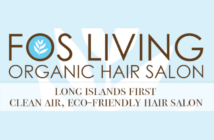 Once upon a time, the safest place in the world was home. Remember playing outside all day, drinking water from the hose, and mom making a homemade dinner every evening? Times have changed. Now, some of the most serious health problems for our children start at home where they spend up to 90 percent of their lives. As a concerned parent, you read all the labels, buy the healthiest foods (non-processed, natural, organic) and would do anything to protect your child from harm. How often do you check and maintain the overall health and wellness of your home’s environment? Did you know your home can have hidden toxins that can negatively affect your child’s health? There are things you cannot see, smell or taste that can be slowly and constantly affecting your quality of life and health.
Once upon a time, the safest place in the world was home. Remember playing outside all day, drinking water from the hose, and mom making a homemade dinner every evening? Times have changed. Now, some of the most serious health problems for our children start at home where they spend up to 90 percent of their lives. As a concerned parent, you read all the labels, buy the healthiest foods (non-processed, natural, organic) and would do anything to protect your child from harm. How often do you check and maintain the overall health and wellness of your home’s environment? Did you know your home can have hidden toxins that can negatively affect your child’s health? There are things you cannot see, smell or taste that can be slowly and constantly affecting your quality of life and health.
The number of children with asthma has doubled in the past 10 years. Since their growing bodies breathe 50 percent more air than adults, keeping the air clean inside your home is essential for their health, especially during development. Your air can contain allergens, like pollen, dust mites and mold, as well as irritants, such as volatile organic compounds (VOCs), which are chemicals used in most products that can easily enter into the air we breathe. The good news is that studies have shown that 65 percent of asthma cases among elementary school-age children can be prevented by controlling exposure to indoor toxins.
Since babies are being born with more than 200 chemicals in their bodies, it’s become even more important to limit their exposure to additional toxins. Their young brains, livers and other organs require a clean source of water to detoxify and eliminate their daily toxic buildup.
If you feel like your child is sick all the time or simply concerned about his or her health and development, you may want to ask yourself a few questions:
• Is the air in your home clean and healthy?
• Do your children have breathing problems, like asthma?
• Is someone in your home allergic to mold?
• Do you know the signs of carbon monoxide poisoning?
• Is there lead anywhere in your home?
• Is your tap water safe to drink, cook with, or bathe in?
• Do you have household products with chemicals in them that can make you sick?
• Do you use bug spray or other products to keep away pests?
Source: healthEhabitats. To find out what’s in your home or to get answers, contact a healthEhabitats environmental expert. They are available to provide you with the information you need to make the best choices for you and your family. Call 1-877-861-3662 or visit BringHealthyHome.com for more information. See ad on page 19.




